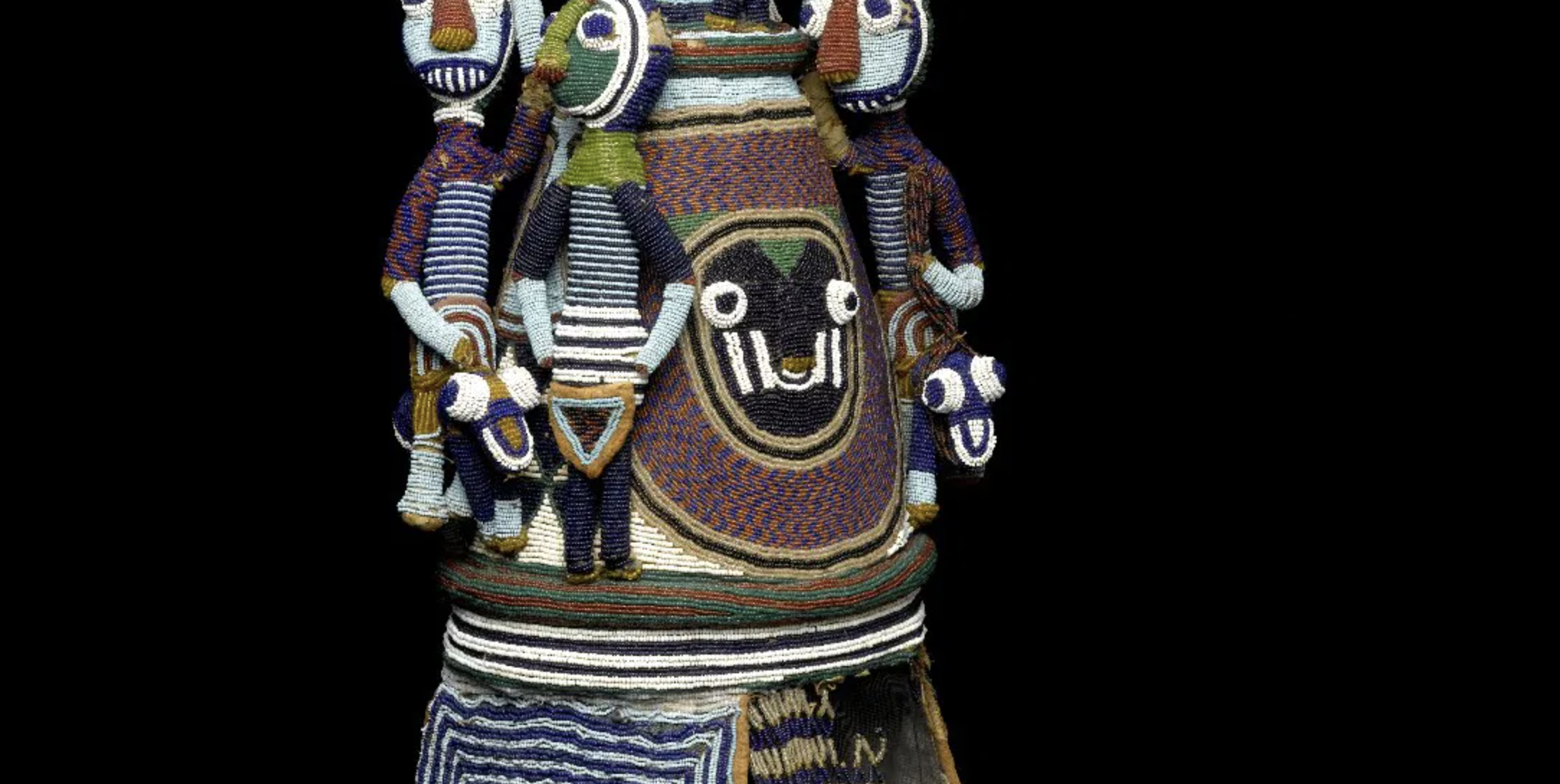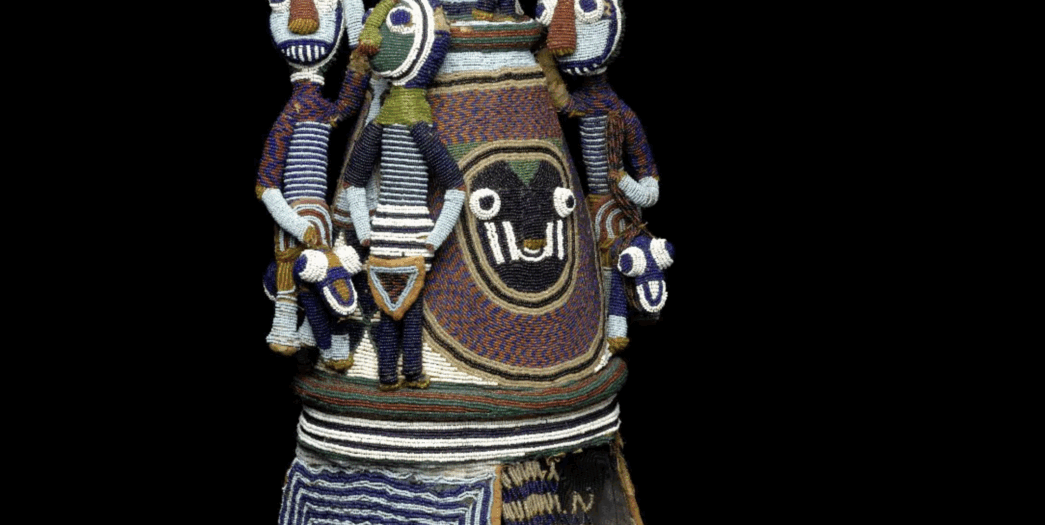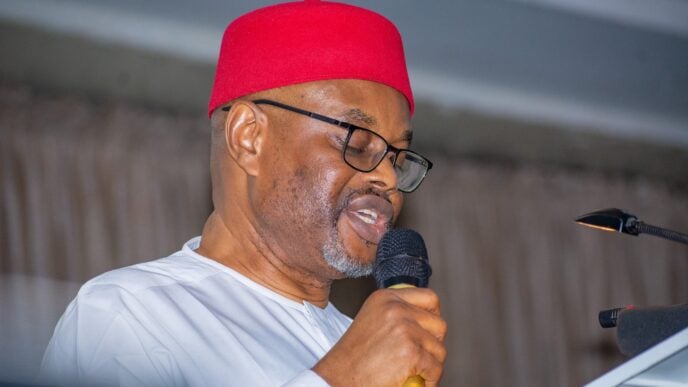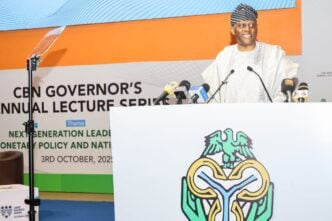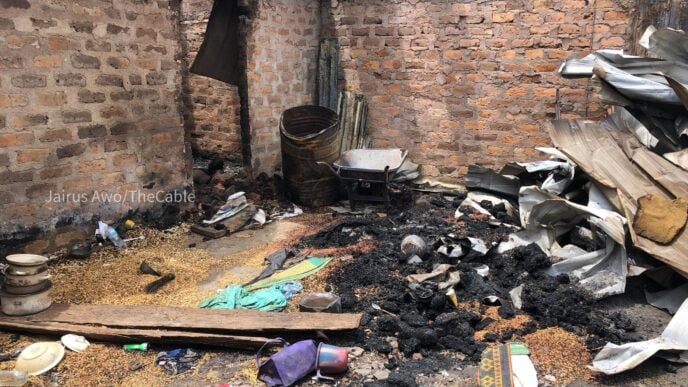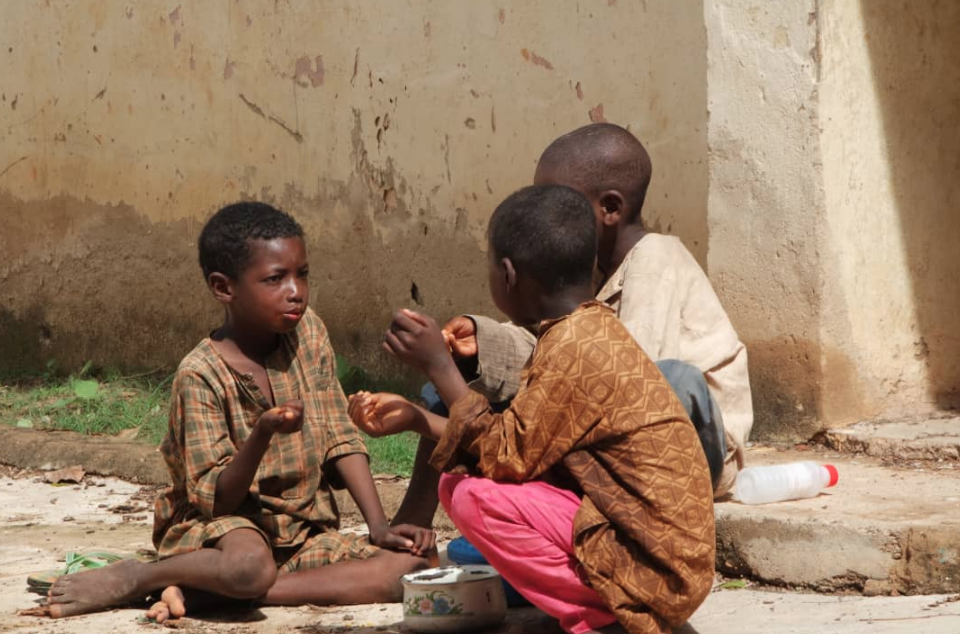It was once said that when two kings meet, the earth trembles. Today, when two Yoruba monarchs clash, it is not the earth that shakes, but the very foundation of our cultural heritage. And the reverberations are felt across the globe in the humiliating echo chamber of social media.
In Yoruba tradition, kings are not mere mortals; they are considered divine embodiments of culture, history, and continuity. They are the custodians of normative systems and values and the bearers of ancestral authority. But in recent times, the sacred aura that surrounds the Yoruba monarchy has been carelessly dragged into the mud of social media squabbles.
Recent memory is stained with the undignifying spectacles of public altercations between some of the most revered stools in Yorubaland. The subtle, yet pointed, exchanges between the Aláàfin of Ọ̀yọ́, His Imperial Majesty, Oba Abimbola Akeem Owoade I, and the Ooni of Ifẹ́, His Royal Majesty, Oba Adeyeye Ogunwusi Ojaja II, followed by another open verbal warfare between the Oluwo of Iwo, His Royal Majesty, Oba Abdulrasheed Adewale Akanbi, and the Ooni, represent a tragic departure from the sacred decorum that traditionally defines the aristocracy. This is no longer a quiet, behind-the-palace-doors disagreement; it is a full-blown washing of our most sacred linens in the public square, and the stain of ridicule is proving difficult to bleach.
For the Yoruba at home and in the diaspora, these episodes are more than just news; they are a source of immeasurable shame. It is more so for those of us who are Yoruba but, by accident of political history, find ourselves in other geopolitical zones (North Central and South South—like Kogi and Kwara, Edo and Delta States, respectively) as minorities. We’re always proud of our being Yoruba, though. Our monarchy is not a mere political institution; it is the living, breathing embodiment of our history, our values, and our connection to the divine. The Aláàfin is a successor to the imperial majesty of Old Oyo. The Ooni is the custodian of the sacred source of Yoruba civilization. When these revered figures (through their respective media aides) engage in public spats, they are not just arguing as individuals; they are, in the eyes of the world, dragging the esteemed legacies of Odùduwà and Ṣàngó through the mud. But, hardly do they realise that. They (the media aides), therefore, need to be told that, as the spokespersons of the kings, they’re, by implication, the spokespersons of the gods and must therefore not be seen to be competing for social media traffic and attention with characters like Habeeb Okikiola (popularly known as Portable) and Martins Vincent Otse, a.k.a., Verydarkman. If they do, the consequence is a devastating erosion of respect for the thrones whose images they make.
Advertisement
With the recent spats, “Generation Zs” from other ethnic groups, armed with smartphones and a savage wit, have found a new pastime: memeing the Yoruba royalty. Our kings, who should be figures of awe and wisdom, have been reduced to subjects of internet jokes and viral skits. The sacred “àṣẹ” (authority) they embody is being trivialized into a tool for social media clout and petty one-upmanship. How can a young Yoruba man defend the sanctity, the pride, and the dignity of his culture when its foremost custodians are the ones breaking the vase through the reckless engagements between their respective media minders?
It is imperative that Yoruba monarchs recognize the weight of their crowns and how sacrosanct they are. Wearing the crown is not for show; it is a sacred responsibility. If they must differ—as human beings surely will—there are traditional mechanisms of conflict resolution deeply rooted in Yoruba culture: councils of elders, conclaves of kings, and discreet mediation. Resorting to social media outbursts not only dishonours their forebears but also sets a disastrous precedent for the future.
A Yoruba adage says, “Agbà kìí wà l’ọ́jà, kí ori ọmọ tuntun ó wọ.” (With the presence of elders in the market, the head of an infant, backed by its mother, should not be left to hang askew). Our kings are the elders of the Yoruba nation. Their conduct must be exemplary, not entertaining fodder for TikTok or Facebook banter.
Advertisement
The Yoruba people worldwide must also demand better from their monarchs by setting boundaries for royal aides like Messrs. Moses Olafare, the spokesperson for the Ooni of Ife, and Bode Durojaiye, director of media and publicity for the Alaafin. Respect is reciprocal, and if the custodians of culture persist in dragging the crown into ridicule, the younger generation may abandon the monarchy as an outdated relic rather than revere it as a living institution. May we not get to that juncture.
This new episode of “Royal Rumbles” highlights a critical, urgent need for self-regulation. They don’t have the right to go dirty on each other. Yorùbá sons and daughters would never take that from them. The time has come for a conclave of Yoruba monarchs to establish an unbreakable code of conduct for public engagement, especially on social media. The issues are clear:
1. The Desecration of the Stool: Every insult hurled from one king to another, whether by themselves or through their media aides, is an insult to every Yoruba person and the ancestral stools they occupy. The office is bigger than the occupant.
2. The Weaponization of History: These spats often involve contested historical narratives. Such complex issues should be resolved by eminent councils of traditionalists and historians, not through 280-character threads on X (Twitter). The “best” of us should not be the ones exposing the worst of our culture.
Advertisement
3. A Leadership Vacuum: At a time when the Yoruba nation needs strong, unified cultural leadership to address contemporary challenges, these divisions project an image of a fragmented, leaderless people. May I remind our royal fathers’ media enthusiasts that this is not the time for media civil war among the various subgroups in Yorubaland? Their Okun and Ìgbómìnà kiths and kins in Kogi and Kwara State, respectively, are bleeding now. From Isanlu, Ejiba, Okunran, and Ẹgbẹ́ (in Kogi State), to Eruku, Sagbẹ, Babanla, Bàbà-Sango, and Òkè-Ọdẹ (in Kwara State), blood flows. Spouses are daily being widowed, children orphaned, and parents rendered childless. With that, I think our foremost traditional rulers in Yorubaland should not be preoccupied with anything apart from how our kith and kin would be saved from the banditry of the expansionist marauders that appear to have set their eyes on the coast of the Atlantic.
How do we put an end to this?
The solution lies in a return to our core values of “ìwà pèlé” (good character) and the “Ọmọlúwàbí” ethos for which the Yoruba man is famous. Our royal fathers must remember that their primary role is to be “symbols of unity,” not division; symbols of respect and honour, not disrespect and dishonour. Disagreements are inevitable, but they must be handled with the wisdom and discretion befitting their titles—through private diplomacy, elder mediation, and closed-door meetings. It is not unheard of, if our ancestors had their differences, but it would be unwise for the current generations to want to carry on the perceived historical acrimonies, some of which predated our great-grandfathers. This could be made the generation of brotherliness, reconciliation, unity, and progress in Yorubaland, especially now that the kingdom is under threat from the marauding bandits.
It is a heartfelt plea from every true Yoruba son and daughter: let our kings be kings again. Let them sheath the digital swords and pick up the staff of unity. The world is watching and laughing, but our ancestors are weeping. The crown is slipping; it is time to secure it firmly once more, not with public fights, but with the dignified silence, carriage, and profound wisdom that truly command respect.
Advertisement
To be Yoruba is to be proud of a heritage steeped in nobility. Our monarchs must self-regulate, conduct themselves with the dignity with which their thrones are known, and remember that their crowns are not ornaments for clout but symbols of authority steeped in royalty, nobility, reverence, and a people’s identity and heritage.
It is time for our royal fathers to sheath the swords of ego and reclaim the throne’s lost dignity—not on Instagram, not on 𝕏, but through the age-old wisdom that made the Yoruba monarchy the envy of Africa.
Advertisement
Abubakar writes from Ilorin, Kwara State. He can be reached via 08051388285 or [email protected]
Advertisement
Views expressed by contributors are strictly personal and not of TheCable.

